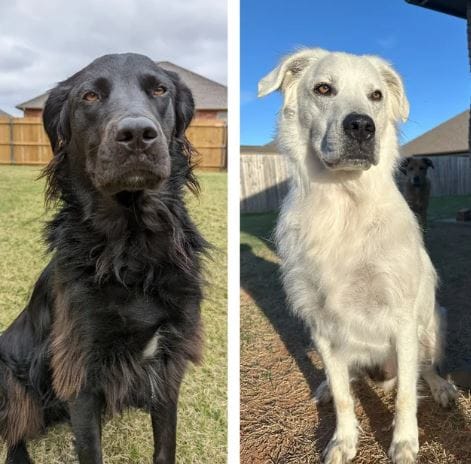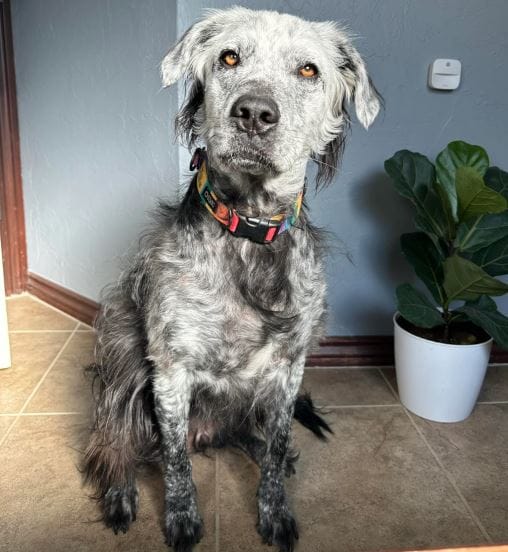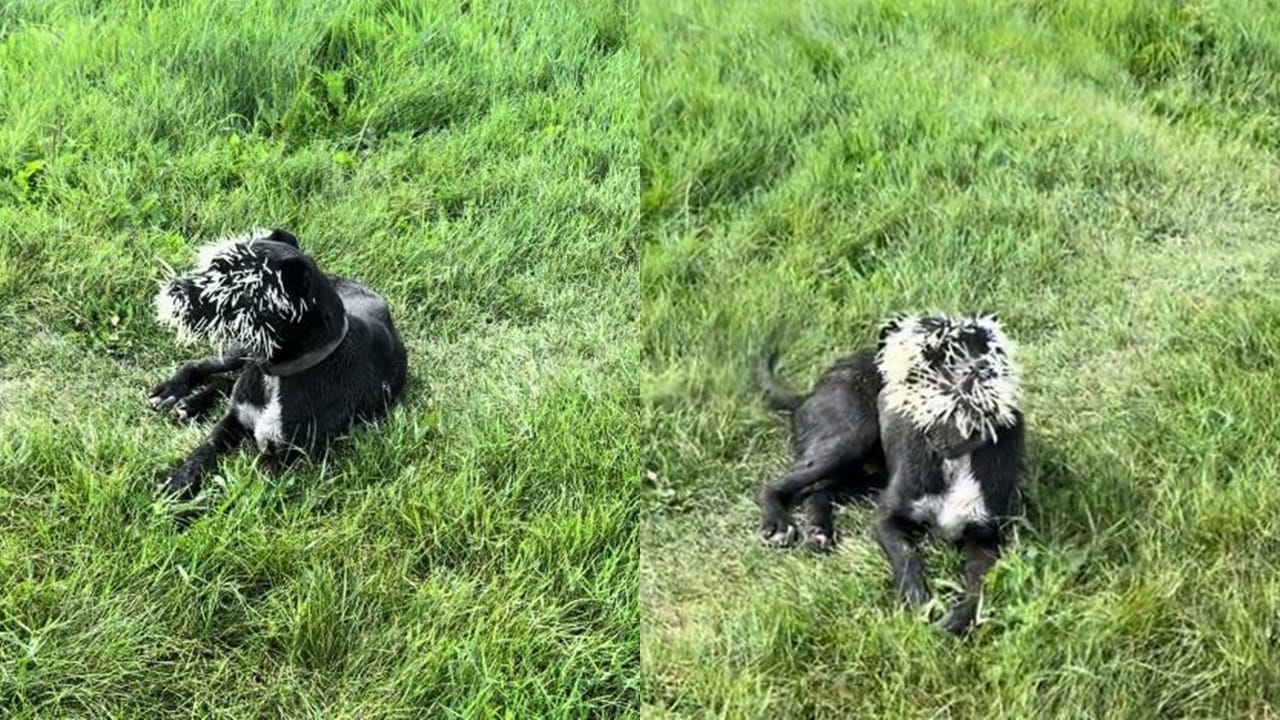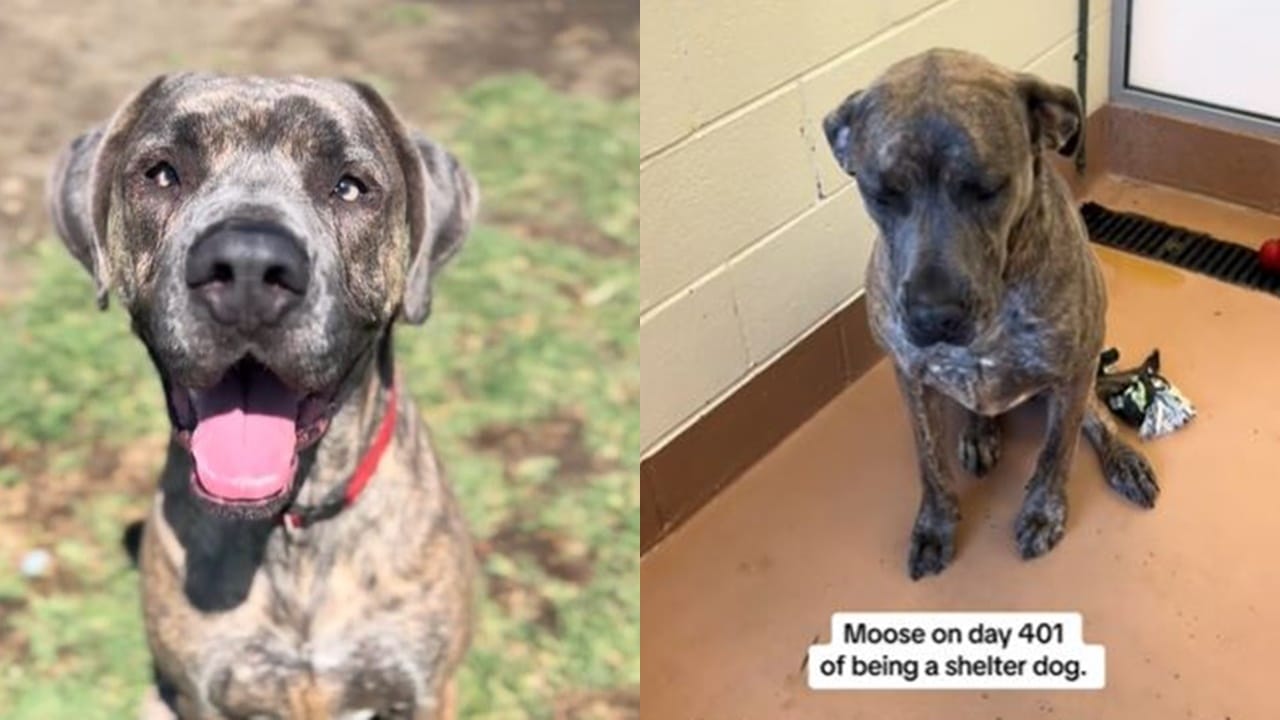On social media, many viewers were stunned after a dog owner shared the shocking story of his dog turning white due to a rare condition.
On the Reddit platform, the story of a black dog turning white due to a rare condition shocked viewers, gaining attention.

A black dog from Oklahoma has undergone a dramatic color change, turning completely white over two years.
His owner, Matt Smith, shared the incredible transformation online, leaving many Reddit users in awe.
A black dog turned while due to rare condition.

On the Reddit platform, a dog owner shared a shocking story about how his dog turned completely white over two years.
The post read: “My boy Buster (4yo) has completely changed from black to white over the course of the last 2.5 years. “
The post showed, His owner, Matt, shared photos showing Buster’s transition from black to white fur. In one photo, Buster’s fur was spiky and black; in another, he was completely white.

Buster’s shocking transformation due to vitiligo
Vitiligo is painless for pets, and there is no evidence that Buster feels discomfort.
Buster, a four-year-old pup, developed vitiligo, a rare skin condition that causes a loss of pigmentation. This condition, also seen in humans, causes pale patches to form on the skin and fur. In Buster’s case, these patches slowly spread across his body over two-and-a-half years.
Matt first noticed small white patches near Buster’s mouth and chin. Over time, these patches spread across his face and body. He said, “Buster would lose his black fur, and fresh white fur would grow in its place.”

Buster’s transformation left viewer stunned on social media
Buster’s transformation sparked conversations among other pet owners with similar experiences.
In the comment section, many viewers expressed their shock about Buster’s transformation due to the rare condition.
Another user expressed concern about Buster’s health and well-being.
One Reddit user shared that their black cat also developed vitiligo. Over seven years, the cat’s fur turned white on its nose, ears, and tail. Even, Reddit users compared Buster’s transformation to that of famous pop star Michael Jackson, who also had vitiligo.

One person said: He looks like a possum in this picture!
A second wrote: Uh oh! His toner’s low!
While a third commented: That’s wild. I never heard of this. He’s a good-looking boy, anyhow.
Another added: Wow, if I didn’t see the transition photos, I would have thought this was fake. Very interesting.
Vitiligo in pets
According to PetMD, vitiligo causes dogs to lose pigmentation in their fur and skin.
The condition often starts on the face, especially around the nose, and can progress to the footpads and other body areas.

It causes painless patches of white fur and skin. While the exact cause of vitiligo in pets is unknown, it is usually genetic.
Certain dog breeds are more prone to the condition, including Rottweilers, Huskies, Golden Retrievers, and German Shepherds. Autoimmune diseases may also play a role, with the immune system attacking melanocytes as if they were foreign invaders.
Sadly, vitiligo in pets remains incurable, but there are management options available for our pet
Some veterinarians recommend increasing sun exposure to help stimulate melanocyte development. Stressful events, hormonal changes, or injury can trigger the condition.
While there is no cure for humans either, early treatments can sometimes halt pigment loss.








